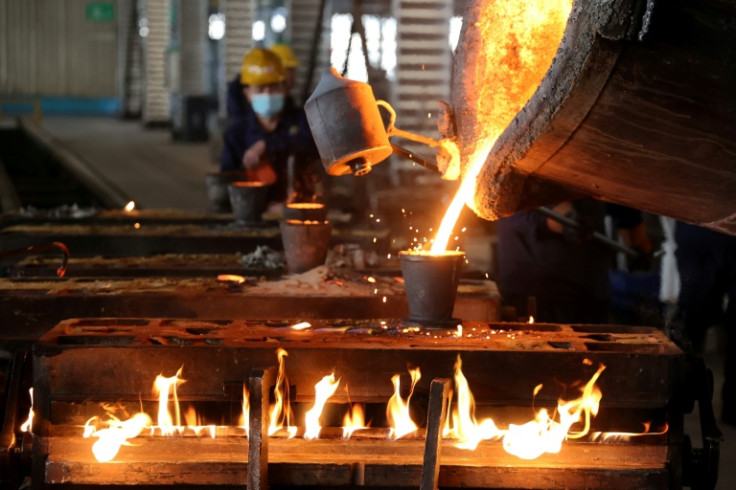Albanese To Urge Trump For Australia's Exemption From 25% Steel And Aluminum Tariffs

Prime Minister Anthony Albanese has confirmed he will speak directly with U.S. President Donald Trump in order to secure an exemption for Australia from the new 25% tariffs on steel and aluminum.
Trump's decision to introduce the tariffs caused a drop of AU$15 billion on the ASX, with the ASX200 falling 0.5% during early trading.
During question time on Monday, Albanese confirmed that he has scheduled a call with Trump and assured that he would approach the situation diplomatically, News.com reported.
"Australian companies have significant investments in US steel industry creating thousands of jobs in both the US and in Australia," he said. "We will continue to make the case for Australia's national interest with the US administration and, what's more, we regard this as also being in the US national interest as well, because tariffs of course don't tax us, they tax the purchasers of our products."
President Trump announced that he would formally unveil the new trade war slug on Monday, U.S. time. He stated that the taxes would affect "everybody," suggesting that Australia may not be exempt from the tariffs.
"Steel. Any steel coming into the United States is going to have a 25% tariff," Trump told a reporter.
Potential impact on Australian exports
In 2023, the country exported AU$237 million worth of steel and iron to the U.S., according to Trading Economics. The UN's COMTRADE database shows that Australia exported AU$638 million worth of steel in 2024.
If tariffs are imposed, Australian steel and aluminum could become more expensive, reducing demand and affecting industries like Rio Tinto.
Government response and past exemption
The Australian government has reportedly been in urgent talks with Trump officials for months, hoping to prevent these tariffs. Trade Minister Don Farrell stressed the importance of fair trade, while Emergency Services Minister Jenny McAllister confirmed that Australia would "continue to advocate for our interests."
"Our bilateral economic relationship is mutually beneficial – Australian steel and aluminum is creating thousands of good paying American jobs, and are key for our shared defense interests too," Farrell pointed out.
During Trump's first term, Australia was able to secure an exemption from similar tariffs in 2018 after extensive lobbying under former Prime Minister Malcolm Turnbull.
Strategic importance of Australian steel to the U.S.
Australian steel is essential to U.S. military operations, including the construction of navy submarines like the Virginia-class nuclear submarine, which Australia is set to acquire under the AUKUS defense pact, ABC reported.
Bluescope, Australia's largest steelmaker, also has major operations in the U.S.
"BlueScope has been investing in the United States for 30 years," a company spokesperson said. "Most recently, we have spent $2 billion on acquisitions and brownfields expansion of our operations there. BlueScope is now the fifth largest steel producer in the US, employing 4,000 American workers."
Despite the looming tariff issue, Australia and the U.S. have enjoyed a tariff-free trade relationship for two decades. However, Australia's trade deficit with the U.S. continues to grow, with exports of AU$33 billion in 2023, while imports stood at AU$65 billion.
© Copyright 2025 IBTimes AU. All rights reserved.





















